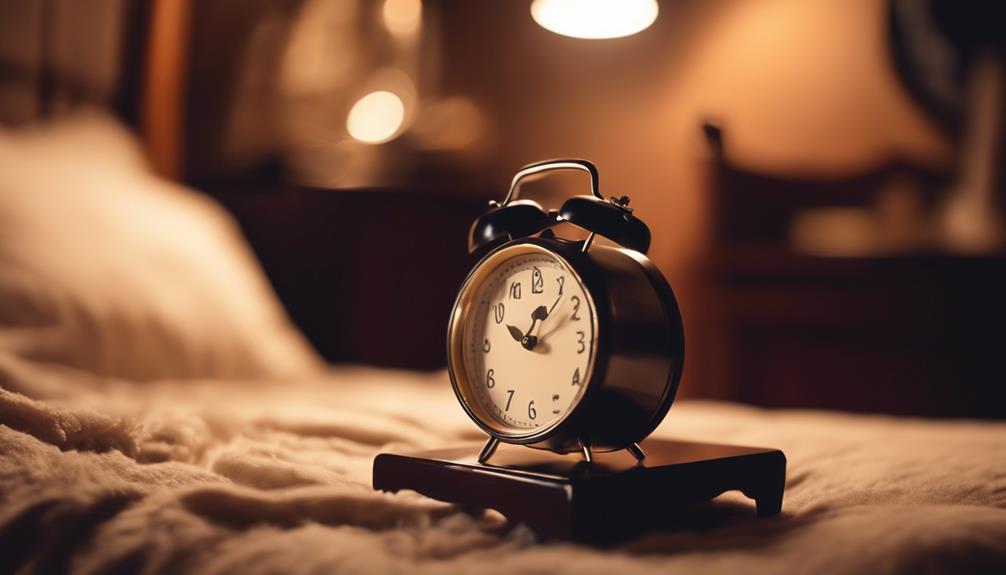If you’re relying on coffee to start your day, experience headaches or fatigue when you skip, or find yourself needing more caffeine for the same boost, signs of dependence are present. You might notice increased consumption over time and withdrawal symptoms like irritability, sluggishness, or difficulty concentrating when you cut back. Recognizing these signs helps you understand your caffeine habits better; keep going to learn how to manage and reduce dependence effectively.
Key Takeaways
- Relying on coffee to feel normal or experiencing fatigue when skipping indicates dependence.
- Increasing your caffeine intake over time to achieve the same alertness suggests developing tolerance.
- Experiencing withdrawal symptoms like headaches or irritability when not consuming caffeine signals dependence.
- Using multiple cups or stronger brews as your usual dose increases shows tolerance buildup.
- Difficulty reducing caffeine intake gradually without withdrawal symptoms points to a dependence issue.

Have you ever wondered if your daily coffee habit has become more than just a morning boost? It’s easy to brush off that occasional headache or fatigue as normal, but these can be signs of caffeine dependence. When you rely heavily on coffee, your body can develop a tolerance buildup, meaning you need more caffeine over time to achieve the same alertness. This tolerance can subtly creep in, making your usual cup feel insufficient and prompting you to drink more frequently or in larger quantities. Over time, your brain adapts to caffeine’s presence, and this adaptation can lead to withdrawal symptoms if you skip your usual dose.
Withdrawal symptoms are your body’s way of reacting to the sudden absence of caffeine after regular intake. Common signs include headaches, irritability, fatigue, and difficulty concentrating. These symptoms can begin within 12 to 24 hours of missing your usual caffeine fix and might last for a few days. If you notice that skipping your morning coffee leaves you feeling sluggish or cranky, it’s a clear sign that your dependence has increased. The more you need caffeine to feel normal, the more your body has adjusted to its presence, and that’s a hallmark of dependency.
It’s important to recognize that tolerance buildup doesn’t happen overnight. It gradually develops as your body gets used to caffeine’s stimulating effects. In the beginning, a small cup might do the trick, but as your tolerance grows, you may find yourself needing multiple cups or stronger brews to get the same energy boost. This cycle can escalate quickly, leading to increased consumption and a stronger dependence. When you’re aware of this, it’s easier to understand why cutting back can be challenging, as your body has adapted to the regular caffeine intake. Additionally, understanding how your brain adapts to substances can help you develop healthier caffeine habits and avoid dependence.
Being mindful of these signs can help you prevent a full-blown addiction. If you start experiencing withdrawal symptoms or notice that you’re drinking more than you used to, it may be time to reassess your caffeine habits. Cutting back gradually is usually more manageable than quitting cold turkey, allowing your body to adjust without intense withdrawal. Recognizing how tolerance develops is crucial in understanding the cycle of dependence and making informed decisions about your caffeine consumption. Remember, caffeine isn’t inherently bad, but overdoing it can turn your morning pick-me-up into a dependency that’s tough to shake. Recognizing the signs early gives you the power to regain control and enjoy caffeine in moderation, rather than letting it control your daily routine.
Frequently Asked Questions
Can Caffeine Withdrawal Be Life-Threatening?
Caffeine withdrawal isn’t typically life-threatening, but it can cause uncomfortable health risks. You might experience withdrawal symptoms like headaches, fatigue, irritability, and difficulty concentrating. While these symptoms can be intense, they usually subside within a few days. If you have underlying health issues or consume large amounts of caffeine, withdrawal could be more severe. It’s smarter to gradually reduce your intake to minimize health risks and ease the withdrawal process.
Does Decaffeinated Coffee Contain Addictive Properties?
Decaffeinated coffee does contain trace amounts of caffeine, so it can have some addictive properties, especially if you drink it regularly. While decaf side effects are usually mild, like mild jitters or sleep issues, it can still contribute to caffeine tolerance over time. If you’re sensitive, you might find yourself craving more, despite the lower caffeine content, making it important to monitor your intake to avoid dependence.
How Does Caffeine Affect Sleep Quality Long-Term?
Ever wondered how caffeine impacts your sleep long-term? You might notice sleep disruption and hormonal imbalance as daily caffeine intake interferes with your natural rhythms. It blocks adenosine, making it harder to fall asleep and stay asleep, leading to poorer sleep quality over time. This disruption can cause fatigue, mood swings, and hormone imbalances, affecting your overall health. Cutting back can restore better sleep and hormonal harmony, improving your well-being.
Are Energy Drinks More Addictive Than Coffee?
Energy drinks can be more addictive than coffee because of their aggressive marketing and higher caffeine absorption rates. You might find yourself craving them more often, especially since they’re marketed as performance boosts. Unlike coffee, which releases caffeine more slowly, energy drinks deliver a quick punch, making it easier to develop dependence. Be mindful of how often you consume them, as their potent caffeine content can lead to stronger dependency.
Can Caffeine Dependence Cause Mental Health Issues?
Imagine waking up feeling anxious and overwhelmed, suddenly realizing caffeine dependence might be behind your mental health struggles. Caffeine dependence can cause mental health issues like increased anxiety, irritability, and mood swings. For example, someone with high caffeine intake might experience heightened anxiety levels, especially during withdrawal. It’s important to recognize that relying heavily on caffeine can disrupt your mental health, making managing anxiety more difficult.
Conclusion
Just like a ship relies on its anchor to stay steady, your body depends on caffeine to keep you afloat each day. But if you find yourself constantly tugging at that anchor, unable to function without it, you risk drifting into rough waters. Remember, true strength comes from within, not from an external boost. Stay mindful, and don’t let caffeine be the anchor that keeps you tethered—learn to sail on your own course.









